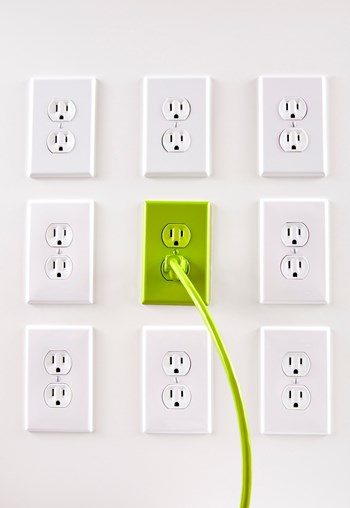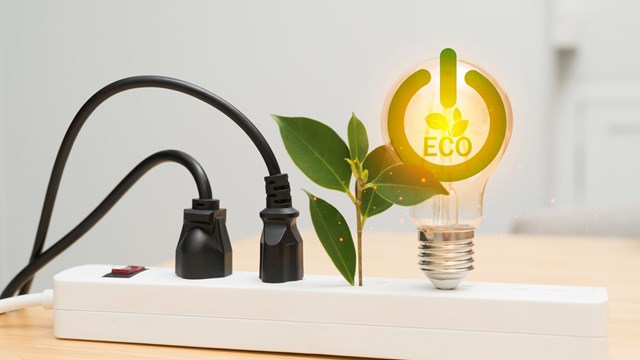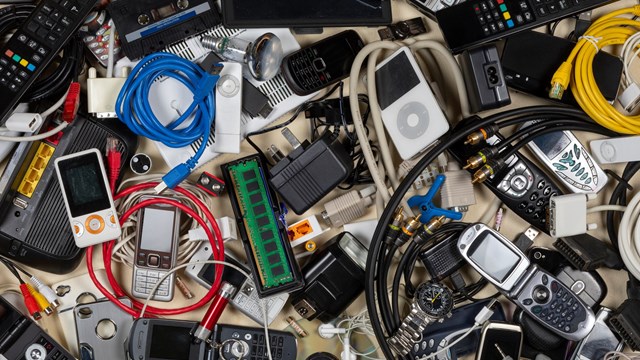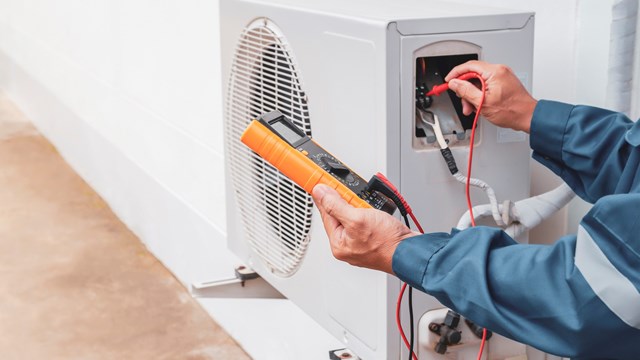
In New York City, electricity is a lot like Chinese food. It's ubiquitous, available for delivery right to your home, and is made with lots and lots of oil. But unlike a good Chinese restaurant, Con Edison, the electricity provider for almost all of New York City, has a menu with only one choice. And until recently, if you didn't like that choice, well that was just too bad. Theirs was the only gig in town. But the days of one-electron-fits-all have come to an end. Now anyone who thinks that their electricity should come from sources that don't pollute, don't come from the Middle East, don't contribute to climate change, and don't double as weapons of mass destruction, can pick up the phone and order a new utility product called "Green Power."
Green power is electricity generated from pollution free, renewable energy, like wind, solar, and small scale, "run of the river" (i.e. no dams) hydropower. The two companies now offering green power to customers in the Con Ed service area are ConEdison Solutions (
Con Ed's electricity comes from a mix of sources including the oil and gas burning plants that line the East River, the Indian Point nuclear plant located 35 miles up the Hudson, and an assorted blend of other upstate power. ConEdison Solutions and 1st Rochdale, on the other hand, sell electricity that comes from a mix of wind and run-of-the-river hydro. Con Ed Solutions' mix is 25 percent wind, 75 percent hydro, and 1st Rochdale's mix is 40 percent wind, 60 percent hydro. And in the future, 1st Rochdale hopes to offer even better green power packages, including one with a five percent solar component, sourced from roof-top installations located within New York City.
So far, business has been nothing but good for both companies. According to Tom Thompson of 1st Rochdale, almost all of the existing 200 megawatts of in-state wind power is already being supplied to existing green power subscribers. This sends a very real and meaningful signal to the developers of renewable energy projects, not to mention energy planners and politicians, that there is a market for their products, and that they can confidently build new renewable generators to meet the energy demands of the future.
Admittedly, the switch to green power can be somewhat underwhelming. Nothing perceptible happens and everything works exactly as it did before. But on the supply side, some very clever legal wrangling is going on to make sure that every unit of green power purchased is matched with a unit of green power produced. The way it works is that each unit of green electricity generated results in a "renewable energy credit" or "green tag." The credit itself is only a piece of paper; a legal certificate that merely states that a given amount of electricity is indeed "green," or from the renewable source that it claims to be from. These credits are stamped by a third party so it's all on the up-and-up and there's no double counting, and are then purchased on the wholesale market by green power marketers. Con Ed Solutions has partnered with a company called Community Energy to be its supplier of green credits, while 1st Rochdale uses a company called Sterling Planet. In fact, if you wanted to, you could keep your regular Con Ed electricity service and buy the credits directly from the wholesalers. Brooklyn Brewery did just this, when in the summer of 2003, with much beer and merriment to mark the occasion, it arranged to "green" its existing Con Ed electricity using renewable credits sold through Community Energy. For a list of New York green power wholesalers, visit
Buying green power is a lot like buying organic produce - you pay a premium for the qualities you value. It's hard to say what the premium for green power is exactly, because the price you would compare it to - say that charged by Con Ed - is a moving target, since much of Con Ed's electricity comes from oil and gas. And as you may have noticed, the price of oil and gas tends to be somewhat volatile. This past month, for example, Con Ed's price for generation (the important figure for comparison - as distinct from transmission and distribution) for residential customers was 9.8 cents per kilowatt-hour (you can find this printed on you're Con Ed bill). Over the past few years, the price has ranged from as high as thirteen cents to as low as seven cents per kilowatt-hour.
Con Ed Solutions and 1st Rochdale, on the other hand, offer fixed price packages. When you sign up, you get locked in to a single price for the next twelve months. For residential customers, 1st Rochdale's current green power offer is 14.4 cents per kilowatt-hour, and the quote I got from Con Ed Solutions was 12.7 cents per kilowatt-hour, but this may vary depending on customer type.
What this means is that the premium for green power, when using current and past Con Ed pricing levels for comparison, is anywhere from seven cents to less than one cent per kilowatt-hour, with the average premium hovering around two to four cents. I live in a one-bedroom apartment and use about 120 kilowatt-hours each month. So for me, the average monthly green power premium is about $3.50. But my usage, to be fair, is a bit on the low side given my rather sparse and joyless lifestyle. The average monthly usage for most families is closer to 400 kilowatt-hours per month, for which the monthly green premium would average out at around $10; or about 30 cents a day. Moving forward, the actual premium may turn out to be much less, and eventually even be negative (i.e. savings), as wind power is only getting cheaper, while oil and gas are getting more and more expensive.
The appeal of green power is that it's doable for just about anyone. Many people have feelings about air pollution, nuclear energy, dependence on foreign oil, or climate change, but may be limited in their options for acting on those feelings.
Most people don't have the political clout to request the closure of the dirtiest power plants, nor do they have the resources, whether financial or solar, to install their own renewable energy power plant. But anyone who pays a utility bill can sign up for green power, and they can do it as soon as today. And those people who do sign up can rightfully claim that the electrical energy they use does not compromise the environment or their political ideals in any shape or form. Even people who drive hybrid vehicles can't make that claim, since they still use gasoline, and still pollute, even if it is to a much smaller degree. And if environmentalism and energy security isn't your bag, it's worth noting that labor unions and economists agree that more renewable energy directly translates into an improved local economy, since the new power will be located within the state, and will help create a new, sustainable industry. Not a bad deal for a few dimes a day.
To read the testimony and musings of a recent green power subscriber, or to see a lengthier description of how the legalities of green power work, please visit the GreenHomeNYC website at






Comments
Leave a Comment